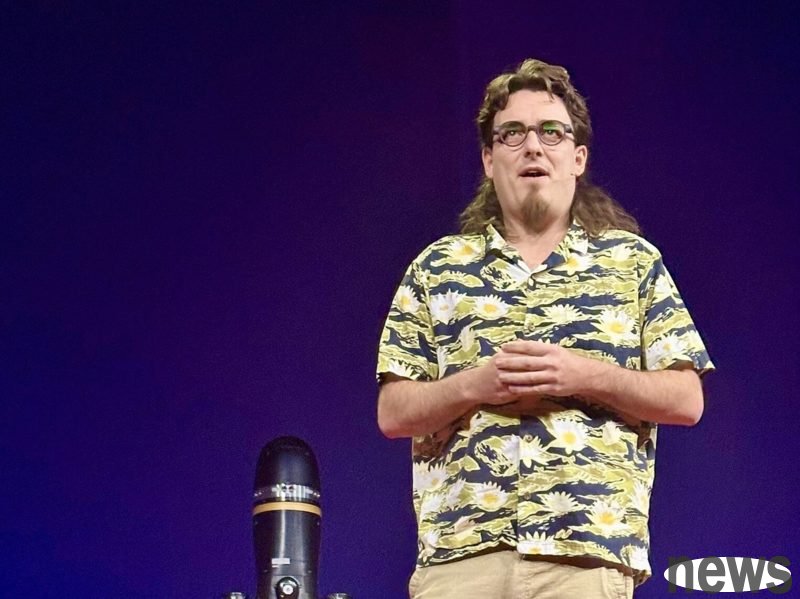
Luckey, the founder of the American defense company Anduril, visited Taiwan in August. During his speech, he emphasized "defending our homeland." When talking about this event recently, he said that Taiwan must believe that it can win, because once it believes that everything is a foregone conclusion, it will be the moment for China to win. Chips should not only be exported, but should be put into military applications such as manufacturing missile seekers.
Palmer Luckey, founder of Anduril Industries, a new U.S. military technology start-up, visited Taiwan in early August to deliver an Altius-600M attack drone and met with Defense Minister Gu Lixiong. During the period, he also gave a campus speech. The Free Press in the United States invited Luckey to have a discussion in Washington on October 6, and the video was released yesterday.
The person who moderated the discussion was Bari Weiss, who had just taken over as the editor-in-chief of CBS News. The topic was even more topical, and the place was packed with people. She mentioned that Lucky gave an inspiring speech in Taiwan recently and asked about the meaning behind it.
"Just as I think the United States still has a chance to reverse China's decision-making, I hope Taiwan believes the same thing. They must believe that they can win this battle and believe that they can make decisions that will allow them to win," Lackey replied.
He pointed out that once they feel that they cannot win, China will win from that moment on. If Taiwan really thinks that it has no chance of winning and that all this is inevitable, then it will get rolled. This is also the moment when China knows that it can do whatever it wants. Therefore, no matter what the reality is, it is important for Taiwan to believe that it has the ability to win.
Lackey said that he also wanted to point out that Taiwan is one of the five or perhaps six countries in the world that has the ability to truly establish a local defense industrial base, that is, it can design and produce independent weapons and components from scratch, and it can confront China head-on.
Basically, Lackey said, countries with such capabilities include the United States, Japan, South Korea, and perhaps Germany in good times, as well as Taiwan. There aren't many. Taiwan should be proud of this and make good use of this advantage. He also suggested that Taiwan should use its own national industries to produce not only semiconductors for export but also for national defense; not only to manufacture sensors for smartphones or digital cameras, but also to manufacture missile seekers; not only to produce carbon fiber bicycles, but also to build carbon fiber cruise missiles.
"Free Media" introduced Lackey on the event page: In the past ten years, the U.S. Department of Defense has simulated countless military confrontations with China, and the U.S. military's record has been "nearly perfect" and it has been defeated almost every time. But if Lucky can help, the situation may not be the same.
Luckey is not your typical defense technology giant. He wears his signature Hawaiian shirt, owns the largest video game collection on the face of the earth, and looks more like country-rock singer-songwriter Jimmy Buffett than George Patton. But don't let this appearance fool you.
Luckey is the founder of the defense company Anduril Industries. His daily job is to build the world's most advanced software and combat equipment, including next-generation drones and aerial systems. His goal is straightforward: "Move quickly, make something practical, and get it into the hands of the people who need it."
Further reading: The 33-year-old "crazy" genius challenges the military industry giant! How Anduril founder Luckey is disrupting the defense industry Anduril collaborates with the Chinese Academy of Sciences to produce the first weapon, which will be publicly displayed at the Taipei International Defense and Aerospace Exhibition Beach bar owner style, Anduril founder Palmer Luckey went from garage otaku to military industry dark horse Anduril founder: Taiwan should leverage its semiconductor and manufacturing strengths to promote "defense technology renaissance"